Point/Counterpoint is a beloved feature that first appeared in the fall 1972 edition of the Weeklings. PC/P is the product of an intellectual tradition hearkening back to storied Oxford debate squads and the golden age of radio, in which two authors match wits over random subjects while being forced to choose a side and defend it on the fly. Readers are advised to stand back, as the heat can get intense. This week’s arm wrestle involves my friend, bitter rival, and fellow Weeklings editor, Mr. Greg Olear. Normally, we would not allow this sort of incestuous and unregulated repartee to break down the fourth wall, let alone the fifth column, but it’s The Weeklings’ one year anniversary, so we’re doin’ whatever in hell we feel like.
Ladies and gentlemen, we are now on the clock.
Punk rock and its possible level of suckage-
Point (Olear): I totally understand and appreciate and applaud punk rock on an abstract level—the beautiful rebellion, against both society and harmony. But with some noted exceptions, I loathe the “music.” Maybe it’s because I have sensitive ears, and therefore have never enjoyed cranking it up to eleven. Maybe it’s because I have the mind of a musician trapped in a frustrated, non-virtuoso’s body, and therefore have no patience for sloppy, mediocre players. When I listen to music, I like the people making the music to be, you know, good. I want to be blown away by talent. Aren’t the Ramones just Danny and the Juniors with longer hair and cooler clothes? A friend of mine recently tried to get me into Fear, and, I mean, how do people listen to this shit? I was in physical pain after a few bars, like my spinal cord was being struck by a ball peen hammer. High-volume punk rock is what the wardens play for the inmates at Gitmo; it is, literally, torture.
Counter-Point (Beaudoin): Sure, there were lots of shitty musicians in the punk scene. But there was also a ton of really talented ones, just like every other musical genre. Your blanket denunciation doesn’t hold up to a fair listening. And for torture, I’d much rather listen to the lamest, most derivative punk schlock than, say, Billy Joel. Besides, “punk” really doesn’t mean anything. Legs McNeil coined the phrase as the title of a fanzine he put out to cover late-sixties/early-seventies NYC acts like the New York Dolls, the Stooges, Johnny Thunders, and the Ramones. All fantastic bands who changed popular music forever, regardless of their technical prowess. If you like pretty much any band of the last forty years who ever played a sleazy power chord, or sung about scoring Chinese heroin, you owe a debt of gratitude to the NYC scene. Not to mention bands like MC5, Television, The Talking Heads, Blondie, Pattie Smith, The Dead Boys, and Richard Hell. But then Punk went to England, acquired The Sex Pistols–and all their fan’s affectations–before coming back to the US and spawning thousands of bands that don’t fit further categorization. Notice we haven’t even discussed hardcore yet. Let alone thrash, speedmetal, black metal, grindcore, oi, discordant nerdy yowling of every stripe, dorm noise, or even Ralph Records. I think there’s a good chance you dislike the music because you haven’t had anyone (me and Duke, a stack of vinyl, one long whiskey weekend) walk you through enough of the excellent touchstones to see beneath the initial abrasion. Besides, “punk” really isn’t a musical genre, it’s the notion that you can make your own culture, not wait around for someone to tell you what culture to adopt, wedded to an antipathy toward all things “fashionable” than manifests in hundreds of different ways. And lots of times, those attitudes are really fucking stupid, not to mention hypocritical. Hey, is wearing a Mohawk and a nose ring any less a homogenous fashion statement in 2013 than gliding down 5th avenue in a Brooks Brothers suit? Maybe a punk look was ballsy in 1977 Alabama, but now it’s just another catalog shoot. Sonny Rollins wore the first Mohawk in the mid 50’s, after he got out of jail for heroin possession. Imagine a tall black saxophone genius practicing scales every night under the Brooklyn Bridge with a haircut most people identified, at the very least, with Satanism or madness. Now that’s fucking PUNK.
Also, Fear is awesome.
Point (Olear): I’ll allow that Lee Ving was excellent as Mr. Body in Clue.
Kobe Bryant’s endless tenure in the NBA-
Point (Olear): Twelve players were taken before Kobe Bean Bryant in the 1996 NBA Draft, including such immortals as Lorenzen Wright, Samaki Walker, and Vitaly Potapenko. At the time, herd-minded general managers were gun-shy about nabbing high school kids, even though everyone, I mean everyone, knew Kobe’d be amazing. John Calipari, who then ran the Nets, passed on him with the eighth pick, opting instead for the earthbound Kerry Kittles, and somewhere in Memphis is probably still sick about it. The Lakers flipped chain-smoking center Vlade Divac to Charlotte for the young phenom, and the rest is history. From the gate, I loved everything about Kobe: his name (for a Japanese steak!), his pedigree (his old man, Jelly Bean Bryant, was a pro ball journeyman), his upbringing (“from” Philly, he grew up in Italy and speaks fluent Italian), his understanding of celebrity (he went to the prom with Brandi!), and especially, his game. I loved, and still love, watching this guy play. Early Kobe bounced around like a power-upped Super Mario, and Late Kobe still, somehow, possesses the ability to get it done. Yes, he can be petulant. Yes, he can be a dick to his teammates. Yes, he shouldn’t have gotten the Black Mamba tattoos. Yes, his behavior in Colorado that night was inexcusable. No, he ain’t MJ. But he gives more of a shit than almost anyone, he plays through injuries that would take you or me months to recover from, he understands and respects the history of the game more than anyone else, he carries himself like a professional at all times. During the Olympics opening ceremony, Lebron James and the other guys were flashing their iPhones and video cameras, like they were happy to be there. Kobe alone strode like the proud warrior he is, understanding that he was there to parade, not to gawk. I’m a Knicks fan, but Kobe is probably my all-time favorite basketball player. I’m really bummed about his injury. The playoffs haven’t been the same without him.
Counter-point (Beaudoin): It has been mentioned in this forum previously (to riotous laughter) that I am a Golden State Warriors fan. What exactly is a Golden State? Floating in a vat of fermenting suds at the Molson factory? Crouched beneath a urinal trough at a street fair pisser? Painted head-to-toe in auric latex by Ernst Bloefeld? All that aside, my Warriors could have easily selected Mr. Kobe Bryant with the thirteenth pick in the ’96 draft. I certainly wanted them to. Or at least anyone but who they ultimately chose. As hard as it is to remember, drafting high school kids in the lottery was once considered to be one step from madness. So we (and by “we” I mean the universally acclaimed basketball genius Dave Twardzik) selected the safe choice. Which would be one Todd Fuller, a slow, sleepy-eyed white forward/center from NC State whose claim to fame was the killer combo of “high basketball IQ” and “good locker room presence.” Which are two things that come in real handy in your local CYO league, but are nothing but a recipe for abuse in the NBA. And Mr. Fuller was indeed abused. Painfully, brutally, cringe-ingly. It was hard to watch. He lasted a couple of vanilla pudding seasons and then went on a Mormon mission or something. Or maybe just laid down behind a couch at his aunt’s house and quietly expired. In any case, the Warriors could have had Kobe. Straight up. No trade needed. So, I’ve always had a hard time watching Mr. K. Bean Bryant work his magic with the hated Lakers. If only the Warriors front office had an ounce of balls, we’d now have four or five championship banners hanging from the rafters (although, to their credit they also passed on Steve Nash and Jermaine O’Neill in that draft, so at least they can claim consistency). By the way, your boy Potapenko, known as the “Ukrainian Train,” was a monster at Wright St., and I still can’t believe he wasn’t more effective in the NBA. Kerry Kittles had a decent career that was ruined by injuries. Samaki Walker, on the other hand, was a shambling turd.
We can judge the art without judging the artist-
Point (Olear): The Kobe debate segues neatly into this argument, which I’ve been thinking about since Sam Sattin wrote a piece about Charles Kraftt way back when (ed. note: The New Yorker has also been thinking about this). While there are some instances where an artist’s odious behavior and/or politics must inevitably color the art they produce, I find that, in general, this biographical information is irrelevant. That Roman Polanski had sex with a drunk and under-aged girl at a Hollywood party—a despicable thing to do any way you slice it—does not change the fact that Chinatown is one of the best movies ever made. Ditto Charlie Chaplin’s preference for very young women (he was supposedly the inspiration for Clare Quilty) and The Great Dictator. Caravaggio was a drunken brawler who once killed a man in a bar fight, which tells us exactly nothing about the sublimity of his canvases. Same with Gaughin and whatever he was doing with those Tahitian girls. Rousseau abused the fuck out of his children, and Thomas Jefferson kept, and pretty much forced himself upon, slaves; should we then abolish the grand ideas they generated, on which our nation’s government is based? And what of all the artists of old whose lives are cloaked in mystery? For all we know, Homer was a serial killer who dined on his victims, but if he was, would we hurl The Odyssey into the wine-dark sea? Our personal lives soon turn to dust; art is forever.
Counter-point (Beaudoin): I’m inclined to agree with you about artists from the past. We cannot judge them, nor can we truly appreciate the circumstances under which they were forced to make decisions. There is a school of thought that Shostakovitch was a “traitor to the cause” (whatever that is), because he accepted Politburo patronage so as to be able to continue to compose some of the most beautiful music ever written. Should he have spoken out and died eating boot rubber in a Siberian re-education camp? Would we all be better off had he made that futile gesture? Was he secretly writing “party music” while being as subversive as he possibly could? And even if he was a craven boot-licker, who are we to say that we would have done differently in his circumstances? Everyone envisions themselves a hero, or a paragon of moral rectitude, but true heroism in the face of certain torture or death is celebrated so widely in the arts precisely because it is so rare. I love H.L Mencken. I am not much interested in the politics of some of his less enlightened statements. He was a product of a time and place, and I can appreciate him as such. I also love George C. Scott movies, and the fact that he supposedly was a hateful drunk in person does not change how excellent his performance in The Hustler was. I am a huge Chet Baker fan, and I once heard a lecture by Orrin Keepnews, who produced many of the greatest jazz albums of all time, and he said “Chet Baker was the most miserable human being I’ve ever worked with.” Of course, Chet was also a junkie and a thief and a master manipulator. I’ll still burn down any given midnight listening to him sing Time After Time without feeling the least bit guilty about it. But the point is, those people are all dead and gone and generally lived in circumstances which would be ridiculous for us to judge, or even pretend to understand. Conversely, Charles Krafft is alive and working outside Seattle right now, not too far from where I live. I can very much envision his circumstances, and I feel perfectly comfortable letting his anti-Semitic and historical revisionist views color my appreciation of his kitchy, faux-ironic Nazi ceramics. Although it does still seem possible he’s pulling a James Frey and this pro-Nazi stuff is part of an elaborate commentary on the purpose, value, and meaning of art, let alone the ridiculousness of commerce and criticism. But that degree of irony seems a little too much to hope for.
Point (Olear): I’m talking about good art, not whatever it is Krafft’s doing.
The cult of Jack Kerouac-
Point (Beaudoin): Kerouac is yet another artist we are forced to attempt to separate from his public behavior. Despite all the hippie Gary Snyder/Zen freedom “Mad America” talk, Kerouac became a tedious drunk at the end of his life and made a fool of himself on the Dick Cavett show, among many other venues, reveling in his own brand of wet-brained social commentary. Nevertheless, I think On The Road is a fantastic document. Although reading it and judging its impact in 2013 does strike me as a little foolish. There is simply no way to calculate the stones it took to pen, let alone publish that novel in the cultural and political doldrums of 1957. But what does the name “Beats” even mean? It’s less a group of truly related writers than a manufactured movement for a Life magazine article. I give it no truck. Take each book at face value, or don’t take them at all.
Counter-point (Olear): The Beats never did it for me. I never identified with their overt angst, I never wanted to be them or be like them, I hate drugs and novels about drugs, they struck me as egregiously pretentious, nothing they wrote had any resonance for me whatsoever. (It didn’t help that their books are quarantined in the bookstores, so you can’t leisurely thumb through the pages). I tried to read On the Road three or four times and never finished. He’s in New York, he gets on a bus to go West, he gets on the wrong bus and winds up in upstate New York (near where I am typing this), he takes a bus back to New York, he gets on the right bus…zzzzzzzz. Kerouac really did that—holy wow!—and then he resumed living with his mother. Or was it his aunt? Compare this to Henry Miller, who was in Great Depression Paris, banging Anaïs Nin and sponging off her husband, and wrote about his experiences much more compellingly. Tropic of Cancer is orders of magnitude better than On the Road. I fail to see how Kerouac is not Henry Miller lite. Very lite.
Point (Beaudoin):I too love Tropic of Cancer. In fact, it changed my life profoundly as a teenager. Possibly for the worse.
The cipher that is Tom Cruise-
Point (Olear): Here we go, yet another example of an artist whose personal life is a shambles, but whose body of work is beyond reproach. The guy is an enormously talented actor, and beyond that, a movie star. There are only a few of the latter in the world, actors who command attention in just the right way, and he’s one of them. The reason he’s been in so many Mission Impossible-type films is because he can carry them, and very few people can. But it’s more than that. Joe DiMaggio was known to hustle on ground-outs to short—to give his all on every play, however insignificant. When asked about this, he said something like, “There might be some person in the crowd who has never seen me play before, and I want to make sure to give that person his money’s worth.” Tom Cruise does the same thing, but in movies. He’s the poster boy for Giving 110 Percent. As long as a part requires energy, he nails it. He schools Nicholson in A Few Good Men, swings it in Magnolia, embodies magnetism in Eyes Wide Shut, flails like a drowning man to save the epic failure that is Vanilla Sky, animates the otherwise-dead yawnfest of Interview with a Vampire (making Anne Rice look the fool for questioning his casting in the process), and is riotously funny in Tropic Thunder. I don’t care about couch-jumping, Scientology, sexual preference rumors, or the fact that he refused to have sex with Mimi Rodgers. Tom Cruise is one of the best actors, and probably the most underrated, of our generation.
(beat)
Go ahead, Sean. The duck is in the barrel. Fire when ready.
Counter-point (Beaudoin): Wow. Just…wow. I sort of admire your taking this stance, since it is so unexpected, but I must stridently disagree. The truth is that Tom Cruise has been good in exactly two (2) movies. Born on the 4th of July and Risky Business. He has been dead-meat action/poster fodder in so many movies that he requires his own essay. Actually, he was perfect in Cocktail, where he played an emotionless and amoral cipher, which really didn’t seem like that great a stretch in terms of craft. “Embodies magnetism” in Eyes Wide Shut? Seriously? I am a huge Kubrick fan, but that movie is a pretentious mess, and Cruise being in it–in any role except possibly an anonymous rent boy in the sex club–might be the second worse casting decision in the history of film. Vanilla Sky was a two hour middle finger to the original film, Open Your Eyes. Which wasn’t Cruise’s fault, but he was also atrocious in Interview With a Vampire, still not as bad as Brad Pitt, although that’s like saying you were the superior talent in Dude, Where’s my Car? The fact that Mr. Cruise’s best roles are industry-insider jokes wherein he dons ponytails or Weinstein makeup and then pokes fun at himself (to prove he’s slightly human after all) says a lot. Actually, I will grant you that he was okay as Steph in All The Right Moves.
Point (Olear): I think you have an issue with your thetans.
Counter-point (Beaudoin): How do you not lay the pipe to Mimi Rogers if you’re not secretly taking the pipe from David Miscavage? Just asking.
Point (Olear): He’s just joking, Church of Scientology! Satire, don’t you know. Run along, attorneys.
San Francisco is overrated-
Point (Olear): The weather is crazy, and not in a pleasant way—I was there in August a few years back, and I froze my ass off. And those hills give me nightmares. Obviously there is much to recommend it: the Chinese restaurants, the proximity to Napa, the bookstores, the fact that it isn’t overrun by rightwing assholes (which is what’s slowly happening to New York). I get why people like it. It’s just not for me. I don’t have much use for San Francisco other than as a backdrop to car chases in the Dirty Harry movies.
Counter-point (Beaudoin): If you are going to discuss San Francisco in any context, you simply cannot whine about the weather. It’s like trekking to Angkor Wat and bemoaning the mosquitoes. Besides, I could be wrong but I get the feeling that due to climate change statistical modeling, weather is due to become even crazier up and down the East Coast for the remainder of our lifetimes. So put on a sweater. There is no more physically beautiful city in the country than SF, and the fact it isn’t perfect may be the only reason it’s not overrun with French billionaires, motel heiresses, and canned ham moguls. Which, it sort of is now. But I lived there for seventeen years, and for ten of them got around entirely on a bike. Hills? Grow a sac. But the light! The light! It is Florentine. It is of the Renaissance. It could have inspired your boy Caravaggio. I miss it, deeply and on a cellular level, every single day.
Capital punishment-
Point (Olear): As a devout leftist, I know I’m supposed to oppose this, and when you consider how haphazardly the death penalty is applied in this country—illegal in some states, pursued with fiendish alacrity in Texas—and factor in the fact that innocent men (it’s usually men) are executed from time to time, it’s probably best to abandon as federal policy. Also, it can be argued that rotting away in some fetid cell for a lifetime is perhaps a fate worse than death. That said, I have no qualm with egregious monsters being executed. On sight, when possible, like the FBI did to that horrible man in Alabama who held the kid with Asperger’s hostage. One of the only actions John Ashcroft took as attorney general that I applauded was trying the D.C. snipers in Virginia instead of Maryland, so that they could get the death penalty. Remember the two evil lowlifes who abducted the woman and her daughter at the Stop & Shop in Cheshire, Connecticut, and then…I can’t even type it. I mean, I’ve been to that Stop & Shop with my kids! I want every shred of evidence that they ever existed destroyed. I want Chuck Norris to shrink down to subatomic size and annihilate their DNA. A few weeks ago, a known sex offender in Albany, an hour from here, jacked a car, stabbed a school librarian in the heart, and then raped her 10-year-old daughter. That man should be fed to the lions. And I don’t mean that metaphorically.
Counter-point (Beaudoin): Well, this is certainly a bait-the-crowd/red-meat sort of argument. But I feel like that viewpoint is more about assuaging a sense of impotence in the face of mindless violence than it is about justice, or even sane public policy. I agree that there are people who commit certain crimes who deserve to forfeit their place in society. Permanently. And probably not very quickly or painlessly. But that notion does not supersede the fact that we have, and continue to, put people who are innocent to death. Barry Schenk’s Innocence Project alone has freed many dozens of death row inmates based on new DNA technology. The death penalty is not only unquestionably racist, but utterly classist. It is applied inconsistently and disproportionately to people of color. People who can afford a decent lawyer rarely meet the criteria for prosecution. So we are murdering the poor, essentially. We are simply not capable of determining “a reasonable doubt” with the degree of accuracy required to institutionally snuff our fellow citizens, no matter what their crime. And the degree of certainty required, by the way, is 100 percent. Prosecutors make mistakes all the time. So do detectives. In this country we think everything’s a TV show, CSI: Death Row, where dozens of attractive cops are working every case with hundreds of thousands of dollars of investigative technology at their disposal, and no case ever gets pushed through the system without a thorough vetting between commercials. But that is simply is not true. Not even close. The penal system in the United States is a travesty, and our unwillingness to enact even basic reform is beyond shameful.
The one year anniversary of The Weeklings-
Point (Beaudoin): It’s been fantastic. I am very proud of what we’ve accomplished. And I love that for our anniversary we get to do some meta-on-meta thing in P/CP pretending we have something objective to say about it.
Counter-point (Olear): I’ll allow that it’s fantastic, and I second your feelings of pride. And I want to thank you, Sean, as well as our fellow editors Jen Kabat and Janet Steen, and our fine Minister of Propaganda Sam Sattin, for lending your time and talents to the project. I want to thank all of our excellent writers for making the site so good. I want to blow kisses to everyone who read us during our first 52 weeks. And I want to flat-out make out with everyone who’s read this far into the P/CP.
Point (Beaudoin): Agreed. And don’t forget Cool Joe D, our new Music Editor! Plus, any reader who has gone this far with us, you have earned my undying love.
Ladies and gentlemen, we have reached the finish line of this week’s Point/Counter-point. Thank you once again for participating. The votes are being tallied and will be released to the public after they’ve been verified J.D. Powers and Associates, as well as the Washington State Attorney General.
 Greg Olear is the author of the novels Totally Killer and Fathermucker, an L.A. Times bestseller . He lives in New Paltz, N.Y. He writes on Tuesdays.
Greg Olear is the author of the novels Totally Killer and Fathermucker, an L.A. Times bestseller . He lives in New Paltz, N.Y. He writes on Tuesdays.

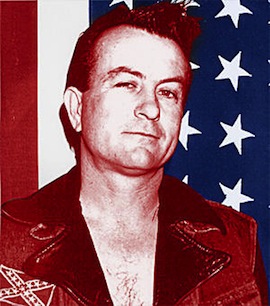
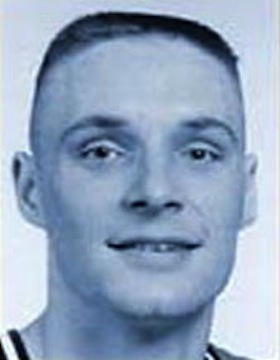
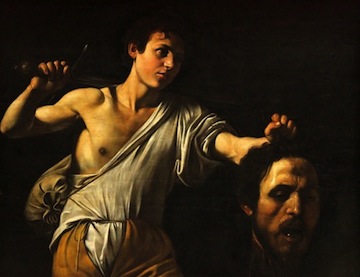
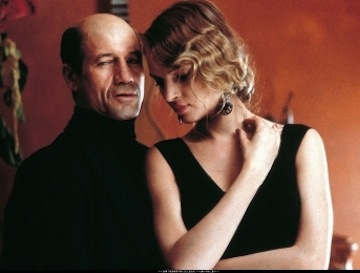
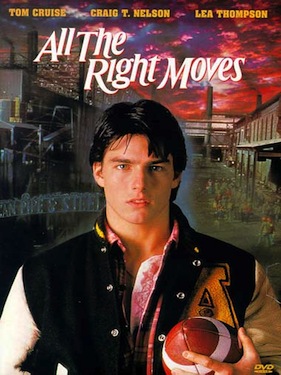
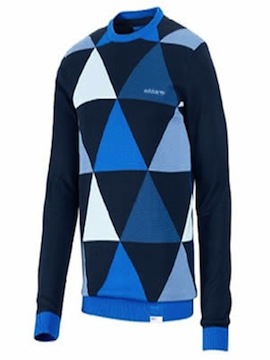
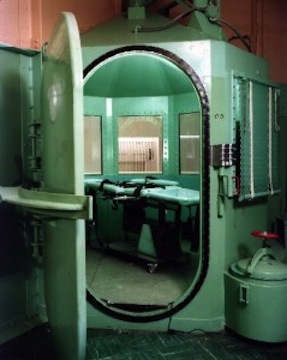


This is fantastic. I couldn’t even figure out who won.
That’s easy: YOU did.
; )
Thanks, Joanna!
Ok, so let’s see…
Fear was good, but punk is way over commodified. No more guitars. Point Olear.
Kobe Bryant is an idiot. Basketball overlaps Baseball season, and as we all saw with Michael Jordan ( some sort of uber Basketballer) not even the best of basketball can hit a curve ball. Point Baseball!!!
Art without Artist. No points. Too artistic.
Jack Kerouac wasted good reems of paper to paste lame gibberish eternally eulogized by drunken frat boys looking to score with the art school confidential set. Point Beudoin/Olear/Miller.
Tom Cruise : My wife worked with Tom Cruise’s former professional jeans tryer-onner. Point Scientology.
San Francisco. Even Beaudoin moved elsewhere. Point Olear.
Capital Punishment. Touchy touchy. Point Beaudoin.
Weeklings year anniversary. Point Joe Daly.
Totals
Beaudoin= Two
Olear = Three
but because you both discussed basketball without any mention of the greatest sport ever invented, Joe Daly wins.
Baseball is the greatest game ever, but it was been ruined so thoroughly by Bud Selig and his greedy minions that I have not been able to watch it for years. Perhaps when Tom McCarver retires, I will pay attention again…although Joe Buck will remain.
Thanks for reading, Hank!
–Greg
Take it back, Hank Cherry won.
Yeah, I’m torn. I side with Greg on punk and Sean on San Francisco and neither one of you on Kobe or Kerouac because Anaïs Nin and Allen Iverson really should get top billing in both of these discussions.
Maybe the tiebreaker (or anklebreaker) is Cruise, because he never met a scene he didn’t chew to shreds, like a puppy on a hambone-shaped bar of meth, which is why only self-parodying actually works. I’m still waiting to see if he signs on for that remake of Last Tango in Paris while, in simultaneous release, voices the factory fudge-packer for real this time on South Park.
Donc, c’est The Weeklings qui gagne, par un pouce.
I also love Iverson. I went to Georgetown, after all, and AI is responsible for turning me on to hoop in the first place. I once played Nerf football catch with him on the quad — a highlight of my college years.
Merci bien, Monsieur Missildine!
–Greg
Punk is at the lower end of the music food chain, right there with country and hip hop. The best of punk wouldn’t make a mix tape.
Kobe Bryant should be with Roethlisberger and the Steubenville crew hanging out in the slammer.
Art vs. Artist – They overlap. Damn straight it’s ok to judge the artist on political views or scummy life decisions. Be judgmental, be benevolently judgmental. Charles Krafft and like…forget about ’em. There’s too much good art there.
Jack Kerouac is such a bad/boring writer he doesn’t deserve to be in the conversation, unless it’s discussing Rhonda Byrne.
Tom Cruise – Anyone who has an inner Thetan is not cool by any standard.
San Fran Almost as happening as Seattle.
Capital Punishment is the second best punishment available, the best being life in prison.
Happy Anniversary
Hmm, tried to bold only the first word or two. My HTML skills lack.
Looks good to us…
Thanks for the thoughts, Caleb. I’m really stoked for the you and David Shields book.
Kobe Bean Bryant and punk rock in the same post. It’s like you guys wrote this just for me. The finest P/CP to date.
We did, in fact. This one’s for you, my brother.
I just have to add my incredibly articulate comment:
Hahahaha “Grow a sac.” hahahaha
But really, Olear, Tom Cruise saved Interview with the Vampire???? If Cruise had been any worse the Razzies would have had to invent a new award. As it is, he was given the dubious Razzie honor that year. Sean is right: Cruise is good in exactly two films. Any other film where he accidentally appears halfway decent must be credited to the film editor.
“Saved” is perhaps too strong, as that movie is hideously awful. But he’s far and away the best thing in it. Although he looks silly with the teeth.
I would argue that Kirsten Dunst and Antonio Banderas are far and away the best, with Virginia McCollam as Whore on the Waterfront running a close third. Cruise doesn’t even come close to those three.